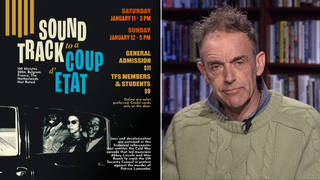
Topics
They are calling it a “historic” night. A groundbreaking night. A milestone event. They are calling it the firstreal Academy Awards show of color in 74 years of history. On Sunday evening, Halle Berry became the first AfricanAmerican woman to earn an Oscar for best actress. She won for her role in “Monster’s Ball”, in which she played agrief-stricken mother who becomes involved with her husband’s racist executioner. Just minutes after her big win,Denzel Washington won the Oscar for best actor for his role as a corrupt LA cop in the movie “Training Day.” It wasonly the second time in Oscar history that an African American man had won that award. The first was Sidney Poitier,who was also honored at this year’s Oscars for his brilliant and barrier-breaking career in film.
Dorothy Dandridge was the first African-American nominated for the Best Actress Oscar–for “Carmen Jones” in 1954.As David Hinkley writes in New York’s Daily News, Dandridge was one of the few African American actresses”able to push a short distance into the general market. But even the most successful female graduate of the blackentertainment world, Lena Horne, spent much of her career hitting dead ends. 'I spent years pinned to a post,' shesaid in 1982, when she was doing a one-woman show on Broadway. ’I’d sing a song that they could edit out so the moviecould be shown in the South. They didn’t want blacks in films there unless they were servants.’”
Well, in the wake of Sunday’s Oscars show, many are saying that Hollywood’s days of racism and exclusion are nowover. Others, however, are not so convinced. Today, we have a roundtable discussion on Hollywood, racism, and thedoor that may or may not have just been opened.
Guests:
- Ruby Dee, stage, film and TV actress, published novelist, poet and columnist for the AmsterdamNews. Dee won acclaim on Broadway in Lorraine Hansberry’s ground-breaking “A Raisin in the Sun” in 1959, and wenton to work with Sidney Poitier in several films and Broadway productions. She played Mother Sister in Spike Lee’s “Dothe Right Thing” and the soft-hearted mother in Lee’s “Jungle Fever.” Dee and her husband and frequent co-star OssieDavis are longtime activists in the civil rights movement.
- Dr. Clara Rodriguez, Professor, Department of Sociology & Anthropology, Fordham University. She is theauthor of ??Latin Looks: Images of Latinos and Latinas in U.S. Media and ??Changing Race: Latinos, the Censusand the History of Ethnicity in the United States.
- Jack Shaheen, media critic and author of ??Reel Bad Arabs: How Hollywood Vilifies a People.
- Anna Deavere Smith, actress, playwright, performance artist, and professor of performance studies at NYU.She founded the Institute on the Arts and Civic Dialogue. She has appeared on ABC’s “The Practice” and NBC’s “WestWing,” and has acted in “The American President,” and “Philadelphia.” She is the recipient of the 1994 MacArthurAward and two Tony Award nominations, the Obie Award for Best Play, Drama Desk Award for Outstanding SoloPerformance, and she was a finalist for the Pulitzer Prize in Drama in 1992.
- Michele Wallace, feminist scholar, author, and professor of English at the City College of New York. Sheis the author of the ground-breaking ??Black Macho and the Myth of the Superwoman, which was published in 1979.She was just 26. Other books she has written since include ??Black Popular Culture, and ??InvisibilityBlues. She also has a forthcoming book with Duke University Press called ??Dark Designs: Race, Gender andVisual Culture.
- Richard Wesley, assistant professor of screenwriting and playwriting in the Department of Dramatic Writingat NYU. He wrote the screenplay for “Uptown Saturday Night” and the follow-up film “Lets Do It Again,” both starringSidney Poitier and Bill Cosby.
- Armond White, Film critic, New York Press. He is formerly head of the New York Film Critics’ Circle. He is the author of ??The Resistance: Ten Years of Pop Culture that Shook the World.
??????
????????????
????????????
????????????
??????











Media Options